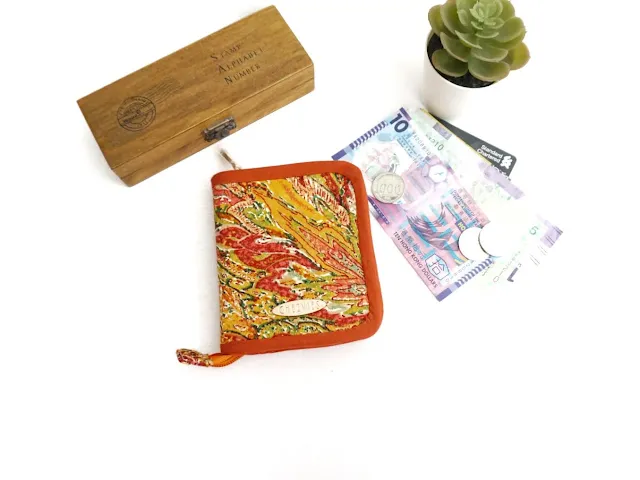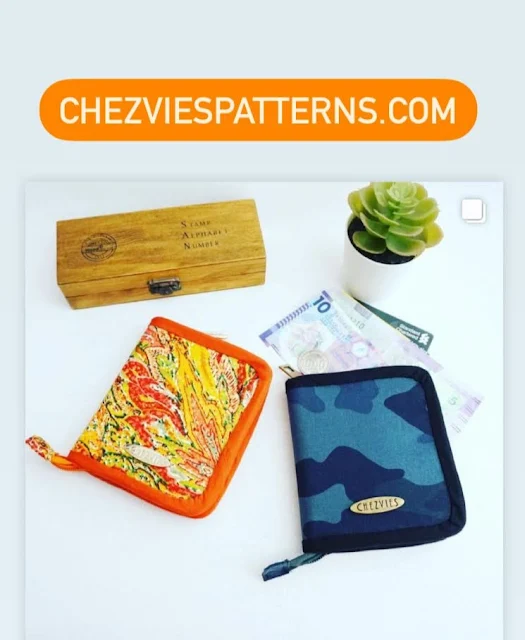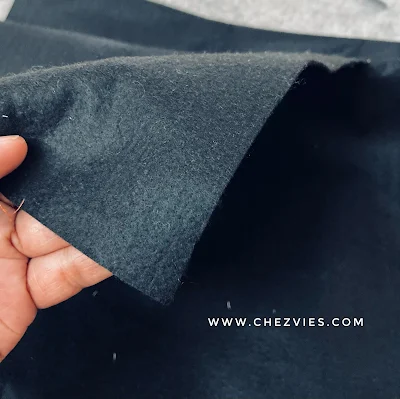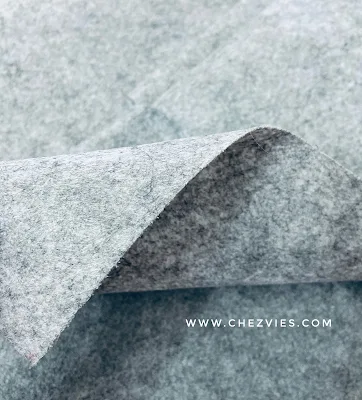I've been making a lot of wallets these past few weeks, from family passport wallets to small bifold wallets. The picture above is the most recent ones. As I am sharing my works on Instagram, I'm getting a few messages asking about interfacing. If you're in India and new to bag-making, I know your struggle! You can read about interfacing for bag-making in India in THIS POST.
But I want to share a few things about wallet-making from my experience here. As I work with different kind of fabrics with different weight, it is important to know which interfacing work best for each fabric.
For the Orange Small Wallet, the fabric is lightweight Cotton Satin. Depends on the project, I used all-purpose interfacing when I make this mobile phone bag and this pouch. But for the wallet, even though in the pattern I suggested using all-purpose interfacing, but I used medium weight interfacing for the orange wallet. I made one using all-purpose interfacing but it turned out too floppy.
 |
| Download the Pattern |
For the Camo Family Passport Wallet, the fabric is twill cotton which is pretty thick. In the Pattern, I suggested using Heavy Weight Interfacing, but since the fabric is already thick, I used all-purpose interfacing for the main wallet and passport slots and using medium weight for the passport base. This will make the wallet sturdy and yet easy to sew on a domestic machine. And although I always prefer to hand-sewn the binding, for this Camo Travel Wallet, I sewed the binding by machine.
 |
| Download the Pattern |
 |
| Camo Family Passport Holder |
For the Blue Camo Wallet below, I use a combination of medium weight and all-purpose interfacing, to give a crisp look.
 |
| Blue Camo Wallet |
Beside the interfacing combo, in India we also struggle to find the padding we use for our bags or wallet. Even though India is known for manufacturing all kinds of wadding/batting, but they are not available in retail and we don't even have a brand name!
And living in the Northeast of India means even less access to all those bag-making and quilting luxury supplies :). We got to find an alternative that works best for us.
Here's my secret sauce for wallet making:
If I am using heavyweight interfacing, I used either flannel or low loft felt as padding/wadding. Felt and flannel are easier to find in the market or even online. The kind of felt that is used for soft toys will work or a little heavier that is used for car padding. Felt pretty expensive though, in the market here it was around INR 280 per meter (36" Wide), while flannel is much cheaper.
If I am using medium or all-purpose interfacing, I use a stiffer felt (170 GSM), like this one on Amazon.
I made the wallet below using a combination of all-purpose interfacing and stiff felt. I kind of like how the wallet turned out, like my most recent custom bifold wallet below. It's light and crisp. If you want a more padded wallet, you can always double-layer the felt.
 |
| Hexies Slim Wallet |
 |
| Download Wallet Pattern |
As you keep making and experimenting with different types of fabrics, you will find your best combo and a finish that you like best. I like my wallets to be crisp but not stiff, that way you can fit in more stuff, unlike leather wallets which have limited expandable capacity.
Resources:
I hope find this post useful. Do share with your bag/wallet maker friends if you do. Let's keep the world sewing :)
Have a lovely day!
Elvira
******








